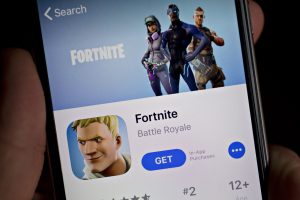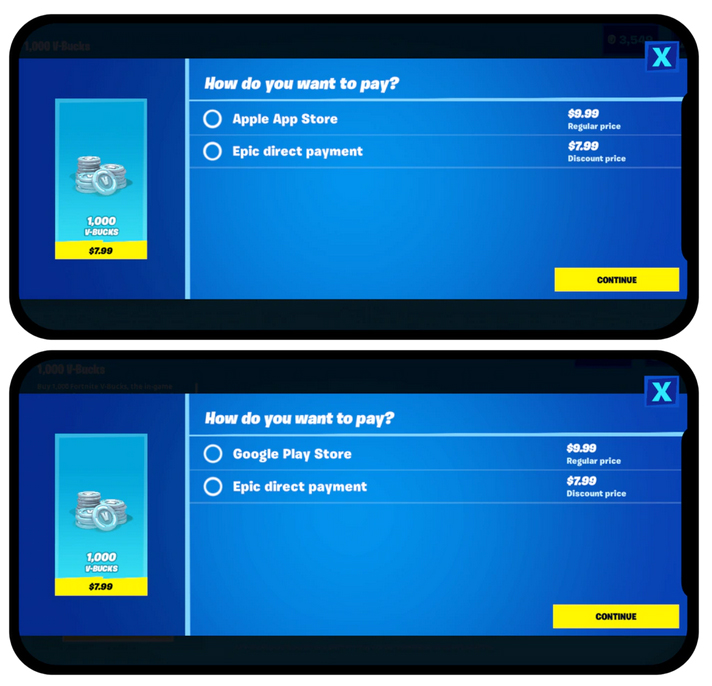After last month's bombshell legal ruling forcing Apple to allow the use of external payment processors for in-app purchases on iOS, Epic CEO and founder Tim Sweeney said Epic Games was "going to do everything we can to bring Fortnite back to the iOS App Store." That "everything" now includes a legal motion in the District Court of California seeking to force Apple to "accept any compliant version of Fortnite onto the US storefront of the App Store."
Apple removed Fortnite from the App Store and terminated Epic's US App Store account in August 2020 after Epic snuck its famous Epic Direct Payments "hotfix" into the game (thereby setting off a yearslong legal battle). On May 9, though, Epic used an iOS account for its Swedish subsidiary—which was recently used to take advantage of Europe's DMA policies—to submit a new version of Fortnite to the US App Store.
Apple formally rejected that submission on May 15, saying in a letter shared by Epic that it believes the recent court rulings "do not diminish Apple’s bases and legal right to have terminated Epic Games’ [iOS developer account]." Even under that new ruling, Apple notes, the 2020 "hotfix" allowing Epic Direct Payments inside the app rather than via an external storefront would still violate Apple's current lawful restrictions on such practices.
"Apple has determined not to take action on the Fortnite app submission until after the Ninth Circuit rules on our pending request for a partial stay of the new injunction," the company wrote in its letter.
In the meantime, Apple suggested that the Swedish Epic Games account should submit a separate updated version of the game—without a US App Store listing request—to prevent this situation from "impacting Fortnite in other geographies." But in a social media post, Epic said the suggestion to submit different versions of the game for different markets is "in violation of [Apple's] guideline that developers shouldn’t submit multiple versions of the same app." As such, Epic said Apple is effectively "blocking us from releasing our update in the EU and US."




 Loading comments...
Loading comments...
